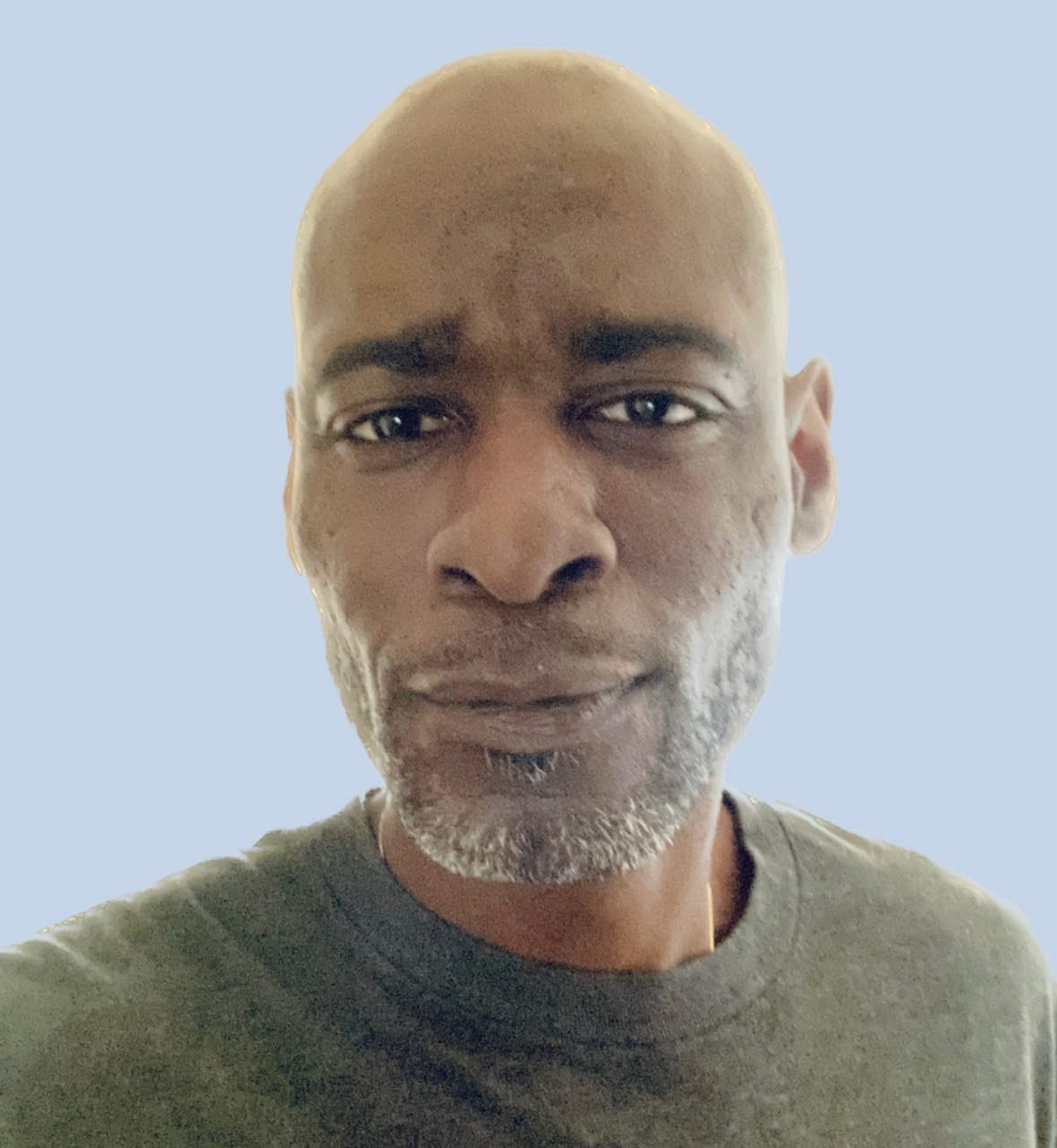Imagine you’re with people you know, and someone broaches a topic — a topic you know very little about if anything at all. As everyone else is offering their opinions and suggestions, you remain silent. Recall a moment when you were scheduled to give a presentation at school or work, and immediately, you were overcome with anxiety.
There have been times when introverts, including myself, have not had the strength to speak up, speak out, and be brave. Be it during public discourse, at work, or elsewhere, it has been difficult for you, the introvert, to say what’s on your mind, and to speak your words with conviction. Why is this?
Well, let’s blame our wonderful, yet sometimes challenging introverted biology. I said challenging because, while there are many wonderful characteristics of introversion such as deep thinking, the ability to embrace isolation and patience, in certain instances, we as introverts flounder. For example – speaking our minds and unleashing our voices to be heard. Additionally, most introverts are hard-wired to remain silent, unless dialogue is one-on-one, in small groups, and/or with people for whom there’s comfort and familiarity.
So, depending on the given social conditions, as introverts, we may opt to sit on the sidelines during deliberations to listen and observe. Yet there are times when introverts must approach the fray to voice thoughts and opinions. But despite our reserved introverted nature, we need not be extroverted or domineering to speak up. This being the case, if you have been classified as someone who isn’t a leader, sidestep the results of the Meyers-Briggs test.
If your color is cool blue and you want to assume a shade of dominant red, you can make the switch. To change colors, I suggest adherence to the following four-step process:
1) Adaptability
2) Courage
3) Knowledge.
4) Find Your Voice
Before moving onward, I’d like you to think of a time when you were afraid to speak out. What or who restrained you from speaking your mind? For the remainder of this post, I will explain the preceding fourfold formula for verbal confidence, and how all four noted advisory points can assist with finding your verbal bravado when needed.
ADAPTABILITY
Adaptability is a powerful talent. To survive or better yet – to thrive, you must adapt to any environment or set of circumstances. Don’t get me wrong — it’s always best to be your authentic self. However, occasionally we all must acclimate to the given climate and conditions of where we are.
OK, but being your authentic self, yet acclimatizing to a given climate or condition – isn’t this contradictory? Not at all. Let me explain – acclimatization involves showing more or less of a given action, or emotion. For example, the ever-glowing life of the party personality type will tone things down and emit solemn vibes at a funeral. Meanwhile, for the cool-calm reserved introvert, instances of intense debate require all senses on deck, like unbreakable eye contact and poise.
Yet acclimatization isn’t limited to climate or conditions, as occasionally we acclimate to whom we are around. And sometimes “the whom” plays a more critical role than “the where” as a deciding factor on how well, if at all, you can acclimatize. For instance, on any given day, your spirits could be as high as the stars until you find yourself in the company of a particular person or people.
For example, decades ago, on many occasions, some women struggled as a minority group among the dominant status quo known as men. In today’s world, yes, the landscape has changed as more women have and are ascending the ranks in the stratospheres of corporate professions, and entrepreneurship. Undoubtedly, the sisterhood has gained momentum and a voice, but the legacies of the past still linger, here and there.
Enter psychologist and counselor, Kim Gaines Eckert who is familiar with the occasional waning of the female spirit in a male-dominated setting. In her book, Stronger than you think, Dr. Eckert wrote, “reflect for a moment on the last group discussion you participated in with both men and women. How did the women speak in comparison to the men? Were the women likely to make disclaimers before they spoke, such as, “I could be wrong, but…” or” This is my only opinion, but…”
As a millennial, early in my lifetime, I’ve heard some women make such statements. But recall my assertion from earlier: the sisterhood has gained momentum and a voice. Considering all things gained, why did I mention Dr. Eckert’s excerpt? I did so because of the disclaimers as in “I could be wrong, but…” or” This is my only opinion, but…” – they sound familiar. Accordingly, how often have you, the introvert, spoken like statements when the moment was too big, the surrounding energy was too strong, or if there was little to zero familiarity with the people around you? If this is you, you must don a cape and assume a stronger identity – switch your color to red and speak boldly.
On the surface, this is switching from mild-mannered to ferocious to adapt to the given environment — especially one that requires a modicum of dominance. Beneath the surface is a force that empowers people, extroverts, and introverts, to speak out. The force in question is one of the vehicles from the fleet of awesomeness — it’s called courage.
BE COURAGEOUS

Before I grew the stones to speak in public, I did not have a voice. I had zero style. And yeah, zero courage. I was a talking-walking bundle of nerves when tasked to give presentations. The bigger the stage, the more afraid I’d become. The bigger the moment, the greater the chance my introverted biology would trigger an implosion.
Initially, like most novice-introverted speakers terrified of the big stage, I spoke in one tone: low. However, with training and wisdom from a great speech communications professor, Dr. Ronald Lomas, and a ton of hard work, I began to believe in myself. Belief in myself as an orator empowered me to circumvent my fear of the big stage. I began to speak with a different diction, as in speaking words of certainty versus the “I think so” and “Maybe” verbiage of uncertainty. My tone of voice became louder, and, with each speech delivered, I became more confident. Once on stage, and confident, I found my strength and burned the muzzle that subdued my voice.
As with outspoken people, extroverts, or those who give zero fucks, they have no problem speaking out. The personalities I’ve just referenced will express themselves, even if they’re the only minority amongst a majority that doesn’t favor them. How is this? How could one say whatever, whenever, to whomever, and not lament potential consequences? From where is their courage derived? The answer to the “how” and “from where” is courage which comes from either bucket:
A) INBRED or
B) DEVELOPED.
Concerning “A” — some people are wired differently. Remember — introverts are wired to remain silent unless the surrounding conditions are in our favor. Our flamboyant extroverted counterparts, however, are wired to talk and let it all hang out.
But let’s examine “B” — courage that’s developed. For introverts who lack courage in communicative scenarios such as public speaking or debate amongst large and/or unfamiliar audiences, courage must be developed.
But how?? I’m so glad you asked! You see, one develops courage by identifying the culprits that cause fear and paralysis, and by finding actions to overtake said fear and paralysis.
When I took the stage as an orator, I was courageous – my courage was developed. As cited earlier, Dr. Ronald Lomas, my speech communications professor, was a big help, as he provided training and advice based on the anxiety and fear he saw in me and other students. Collectively, Dr. Lomas’ mentorship was a fire match. In sequence, my toil and practice to become a better orator was “a part of the development process” to strike the match and light the flame, thus acquiring the courage to speak in public — this yielded belief in myself as an orator. But what I didn’t mention was courage and self-belief were also derived from having sufficient knowledge of my subject matter – this was the other part of the process – or me ultimately holding the flame to and burning the muzzle that subdued my voice.
THE POWER AND SPLENDOR OF KNOWLEDGE
Let’s revisit the intro — out of the gate, I said, “Imagine you’re with people you know, and someone broaches a topic — a topic you know very little about if anything at all.” As everyone is offering their opinions and suggestions, you remain silent because you’re afraid to voice your thoughts. To intensify this scenario, those in attendance, or some of them, are people who once belittled your input during discussions. Following noted experience, the ferocity and courage you had then perished. Next, you began to second-guess yourself — so severely that you chose not to speak your thoughts for the remainder of the discussion.
As you find yourself once again in familiar territory, you have opted to plead the fifth.
While there is no one, and I mean no one who knows everything, I can find comfort in this truth, mainly if engaged in opinion-based conversation. Still, it’s tough for some people to adopt this mindset to overcome the overwhelming fear of looking bad for having said the wrong thing. No one wants to look stupid and be made fun of for disclosure of inaccuracies.
However, having sufficient knowledge as in “knowing enough about a given topic” empowers you to speak. Here’s the deal, when you know what you’re talking about — so much that you can stand behind your words without second-guessing yourself — you eradicate fear. Hey, if someone wants to be an ass and challenge you, it’s easy to take them on, word for word, and defend your statements, all because you know your shit. But we’re not done here, as we need to go a step further, a few feet deeper.
Having sufficient knowledge doesn’t mean knowing all things. Remember “no one knows everything” – this is truth. Additionally, I told you I can find comfort in noted truth if I’m engaged in an opinion-based conversations such as Jordan vs. LeBron, Brady vs. Manning, Coca Cola vs. Pepsi? Which one is the GOAT?? Beautiful ladies and handsome gentlemen, the conversations I have mentioned are watercooler-barbershop–type debates without merit. Instead, acquire knowledge in areas that matter as in work-related affairs, family issues, negotiation for betterment, etc. Sufficient knowledge is evident with, but not limited to supporting quantitative and/or qualitative data, consistent testimonies, answers to most or all questions, unwavering poise, and yes, your voice.
…
Acclimatization, courage, and knowledge combined is a viable practice to counter communicative paralysis. Yet, when tasked to speak, how exactly will you deliver your words? Specifically, will you speak with style or zero personality? Will your voice sound alive and authentic, or flat and artificial?
FIND YOUR VOICE

In their book Own the Room, authors Amy Jen Su and Muriel Maignan Wilkins define Signature Voice as a hybrid of “voice for self” and “voice for others” — the former involves one presenting their unique value and distinctiveness, and the latter is one’s ability to connect and align with stakeholders. Your signature voice is a communicative tool for streaming your ideas and thoughts, yet with innate flair and style.
Distinctiveness – innate flair and style – connecting with your stakeholders, i.e., your listeners – sounds awesome, right? But, to unleash such awesomeness, first, you must find your voice. Cool, yet if you’re someone who has crafted a façade of stoicism to mask your fears or one who has managed to evade public discourse, you must remove your mask and come out of hiding, respectively, and dig to find your timbre. Why? Because deep from within, underneath the ruins of stalled discourse and past failed attempts to growl like a lion, “that voice” is buried inside you. Essentially, you must resurrect what you’ve already got, which is your voice, and develop it for moments of oratory bravery.
When I say, “development of voice for oratory bravery”, this doesn’t require that you become a full-on extrovert or domineering personality. Instead, with adaptability, courage, and knowledge, you want to use your voice to speak out when necessary. What constitutes necessary? Situations such as:
- Expressing yourself, even if the surrounding energy is dominant, or borderline toxic.
- Opting to champion a particular cause, even if you’re the lone supporter of said cause.
- Declaring your opinions, even if your surrounding audience is one of little to zero familiarity because you chose to stand for your beliefs.
Initially, for all who have yet to speak out while in one of the preceding scenarios, and all others alike, your growl may resemble that of a kitty cat – if so, continue reading. Remember – earlier I told you courage is inbred or developed. In the same breath, I said, “For introverts who lack courage in communicative scenarios such as public speaking or debate amongst large and/or unfamiliar audiences, courage must be developed.”
Listen – to reach a point of verbal certainty, or growl like a lion requires practice as in inserting yourself in conversations you’d normally experience as a spectator or honing your skills in public speaking. Despite how uncomfortable this may be, the goal involves building the necessary callouses to endure and overcome discomfort – this is development of voice for oratory bravery.
Make discomfort your best buddy. Do the uncomfortable things until they become comfortable. Embracing discomfort yields comfort. Think about it – once you extinguish fear, life feels a bit easier and more pleasant, and the soul – it becomes more fearless than before.
Also, to reach a point of verbal certainty requires time – a period of development to attain comfort and self-confidence for oratory bravery. Remember who I was: the scared shitless orator. But with counsel, hard work, and time, I improved, found my voice, and ultimately learned how to use it.
…
Most of us believe we know ourselves well. We know our strengths and weaknesses. And apparently, we know the areas we dominate and control. But failing to think you can convert a weakness into a strength, hence the self-imposed limitation syndrome, is detrimental. For instance, detrimental as in you or other people build categorical boxes for yourself. Some examples of categorical boxes, commonly known as clichés, are:
- Athletes are only athletes
- Artsy people are just artists
- All intellectuals are dull and bland
WRONG.
These labels will stick, but only if you allow such attachments.
When speaking out to voice your opinions, you need not be the prototypical alpha. To effectively communicate your ideas sans fear and discomfort, utilize the skills noted in this message. The more you speak up and speak out, the more your tone of voice, level of confidence, and rhetorical effectiveness will improve — seriously.
Before closing, once more, I’d like you to imagine you’re with people you know, and someone broaches a topic. Sounds familiar? Not quite. Unlike this recycled question from our opener, this time, someone broaches a topic in which you have sufficient knowledge.
As everyone else is offering their opinions and suggestions, suddenly, everyone directs their attention to you. You’re up to bat — it’s your turn to speak. How will you react? The floor is all yours, and your listeners are awaiting your response. What will you say, and how will you say it??
Get Acclimated. Be Courageous. Gain Knowledge. Be Vocal. Be Brave. Speak Out!
Kind Regards,
Joshua





